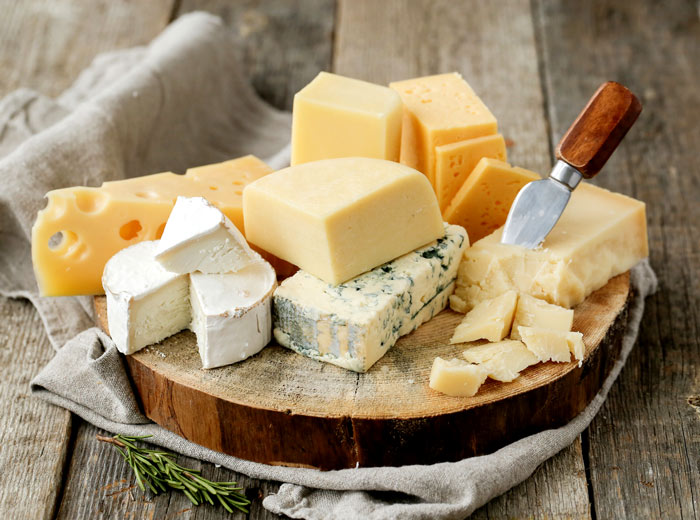I was doing a consultation with a new patient recently when the conversation turned to dairy foods and their effect on nasal congestion. She said that she was keen to get her young son off all dairy to see if it could help his chronic congestion.
However, her general practitioner had told her that dairy had nothing to do with congestion, and that the body’s mucus production was totally unaffected by milk, cheese, butter and similar foods.
This came as a surprise to her, and it certainly came as one to me too! One of the cornerstones of my practice is teaching my patients to breathe through their nose and not their mouth. That’s really difficult if the patient literally can’t nasal breathe because they’re so blocked up. Difficulty breathing at night because of congestion can definitely affect your sleep too, so this is a topic worth addressing.
The “Three D’s”
With many patients who suffer from chronic nasal congestion, I have to find out what’s the underlying issue. I help them to investigate the possible causes, usually starting with the “Three D’s” as I call them, which are Dust, Dander and Dairy. In my experience, I’ve found that these three potential causes are a good place to start.
Dairy is definitely one that comes up often. Reducing or eliminating dairy seems to help a fair amount of my patients who have congestion issues. But what does the science say?
This is where it gets tricky. There are so many opinions out there that it’s hard to sort the fact from the fiction. As with any research, the first thing I do is discard any opinions, thoughts or studies that come from the very people trying to sell the product being researched in the first place. So anything published or funded by the dairy industry just has to be seen as being potentially biased at best.
Some time spent reading the latest research and related articles can easily lead you to believe that dairy has absolutely no influence on the body’s production of mucus. There are however numerous studies that show that while dairy theoretically doesn’t increase the actual amount of mucus, it can cause it to thicken, which no doubt contributes to that sensation of being blocked up.
When you feel as if you just can’t breathe through your nose, then of course you’ll default to breathing through your mouth. This is especially true in children. When this situation is chronic, a life-long mouth breathing habit can be the end result.
So Is Dairy Bad?
But back to the question at hand – does dairy influence congestion? People have believed that it does for a long time, in fact this belief goes back hundred of years, so it’s entirely possible that generations of parents have noticed this phenomenon. Besides the problem with dairy thickening mucus, there’s a theory based around the milk protein casein breaking down in the stomach to produce a substance called casomorphin.

As Dr. Michael Gregor M.D. of NutritionFacts.Org states, “The guess is that opioid receptors on the mucus glands in the respiratory tract may respond to the casomorphin from milk, which could potentially stimulate the production and secretion of mucus from these respiratory glands. This may explain why a subgroup of the population who have increased respiratory tract mucus production, find that many of their symptoms, including asthma, improve on a dairy elimination diet.”
This theory remains to be tested in-depth but it’s an interesting perspective because it goes some way to explain why some people seem to have little to no nasal congestion-related trouble at all from dairy, while others notice substantial differences when they eliminate dairy from their diet.
Is Less More?
So should you or your children cut back on dairy, or even stop eating it completely?
Well, the fact that dairy thickens the mucus isn’t a good sign, not at all. The last thing you want if you’re struggling with congestion is something that makes the mucus even thicker and even more persistent.
What I’d suggest is to stop eating dairy for a period of two weeks. Make a note every day, in the morning and evening, about the differences you’ve noticed. If your nasal congestion improves, then you’ve learned something valuable and you can make an educated decision about whether or not to eliminate it completely. In my experience, it’s certainly worth a try.
Something I’ve noticed is that soft dairy is worse than hard dairy. So, the biggest things to avoid are milk, yogurt, sour cream, cream cheese, etc. Butter doesn’t seem to have quiet the same effect, and nor do hard cheeses like cheddar. If you just love dairy too much to cut it out completely, then you might be able to get some results by just reducing your soft dairy intake.
With the abundance of delicious and convenient dairy alternatives available these days however, there’s very little hardship involved in getting rid of dairy completely. I’d love to know what you find, so please leave a comment below.




